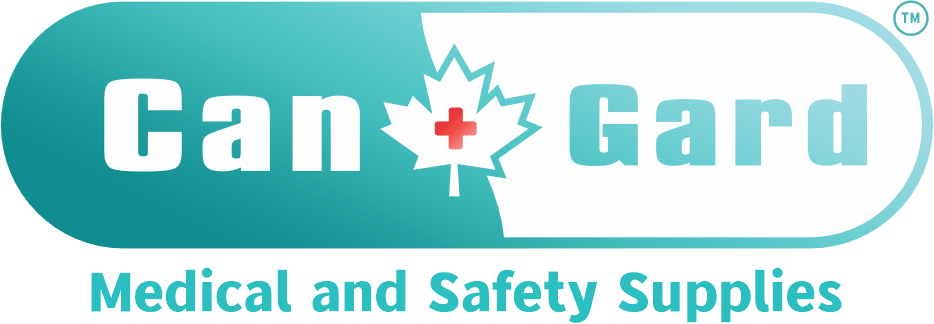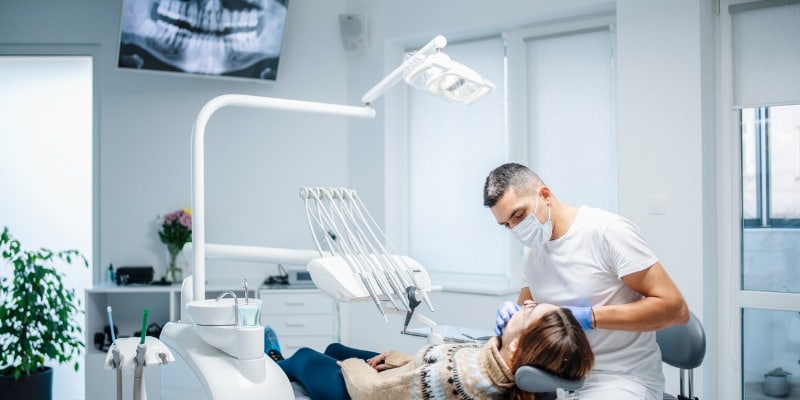No products in the cart.
Dental Industry
Dental Supplies: Your Top 10 Questions Answered
Every dental office requires a wide range of different supplies to maintain a safe environment and provide patients with the best possible care. From needles to safety glasses, disinfectant to dental gloves, having high-quality supplies makes a world of difference. Keep reading for 10 questions and answers about dental supplies that will tell you everything you need to know.
What Equipment Is Needed for a Dental Practice?
A dental practice requires a variety of different equipment to carry out examinations and treatments on an ongoing basis. Aside from all of the dental tools and PPE, some of the equipment that’s required includes:
- Dental patient chairs
- Sterilization equipment
- Utility equipment for pressurized air, water, and suction
- Operating lights
- X-ray imaging equipment
- Storage cabinets
- Delivery systems for electric-powered dental instruments
Please note, CanGard does not carry these dental office supplies and specializes in PPE and dental consumables. Follow the links to discover the products we do carry!
What Are Common Dental Consumables?
In a dental practice, consumables refer to items that are designed for single use. These can include a range of different things, such as PPE, gloves, dental bibs, impression materials, impression trays, polishing cups and brushes, autoclave products, endodontic files, and hygiene or disinfection products. Using dental consumables ensures there is no cross-contamination to ensure the safety of patients and staff.
Why Are Safety Glasses Important During Dental Exams?
Safety glasses are important during dental exams and procedures because they protect the eyes from small particles, sprays, and splatters that may occur. Both dentists and patients can benefit from wearing safety glasses, and it’s recommended for patients during any procedure that has the potential to result in splashes or splatters into the eyes. It’s not always required for a patient to wear safety glasses for a basic examination or cleaning, but safety should always be a top priority.
Why Do I Need to Use a Specialized Dental Disinfectant?
In a dental environment, sterilizing and disinfecting surfaces and dental instruments is crucial. Proper disinfection kills germs and bacteria, so no one else will be exposed to it in future appointments. During the course of a regular day, there can be many different people coming in and out of the office. The nature of dental procedures creates the possibility for viruses and bacteria to spread if proper action isn’t taken.
What Are the Different Parts of a Dental Needle?
Dental needles are used in a variety of different procedures, primarily for administering an anesthetic to numb the gums before filling a cavity, pulling a tooth, or performing another treatment. The most common gauges of dental needles are 25, 27, and 30, and a common dental needle consists of a few different parts. There is the bevel or tip of the needle, which comes in different angles. There is the shank or shaft, which is identified by the length of the shaft and diameter of the lumen (gauge). And there is the hub, which is the plastic or metal piece through which the needle attaches to the syringe.
Where Should I Place Caution Signage for X-ray Equipment?
In a dental office that includes X-ray equipment, it’s important to include the proper warning signs for staff and patients. Caution stickers should be placed on the equipment itself, plus on the door of any room that houses X-ray equipment.
How Do Teeth Whitening Lights Work?
There are a variety of different things that cause tooth stains, and many people seek out tooth whitening treatments to help give them a brighter smile. LED teeth whitening is a non-invasive option that provides great results. The process works by applying a bleaching agent to the teeth, and then an LED light or Halo light is directed at the teeth to help speed up the whitening process. The teeth whitening lights help the bleaching agent break down faster, which enhances the whitening ability of the treatment.
What Are the Different Types of Dental Gloves?
There are several different types of dental gloves used in a typical practice. The most common ones include:
- Latex gloves – These are disposable gloves that are made from natural rubber, making them comfortable for many different uses. They can be sterile or non-sterile and powdered or powder-free.
- Vinyl gloves – Vinyl gloves are made from synthetic polyvinyl chloride resins, and they offer good barrier protection and are resistant to many different contaminants. The gloves are non-sterile and can be powdered or powder-free.
- Nitrile gloves – these gloves are highly resistant to punctures, tears, and chemicals. They are made of synthetic polymers, and the surface provides a good sense of touch. They are good gloves for tasks that have biological or chemical risks and can be sterile or non-sterile, powdered, or powder-free.
What Is a Bouffant Cap?
A bouffant cap is a type of PPE that’s used in a dental setting to prevent stray hairs from contaminating the work area. These caps are lightweight and breathable so they can be worn throughout the day without any issue. A proper bouffant cap will cover the hair completely and fit snugly around the hairline. The name comes from the beehive hairstyle that used to be popular many years ago.
Where Can I Buy Dental Supplies?
You can buy dental supplies from a variety of different suppliers, including right here at CanGard. It’s important to look for a supplier that carries the types of dental supplies you need at prices that meet your budget.
If you’d like to learn more about our dental supplies or any of our other product lines, get in touch with us today, and we will take care of you.

